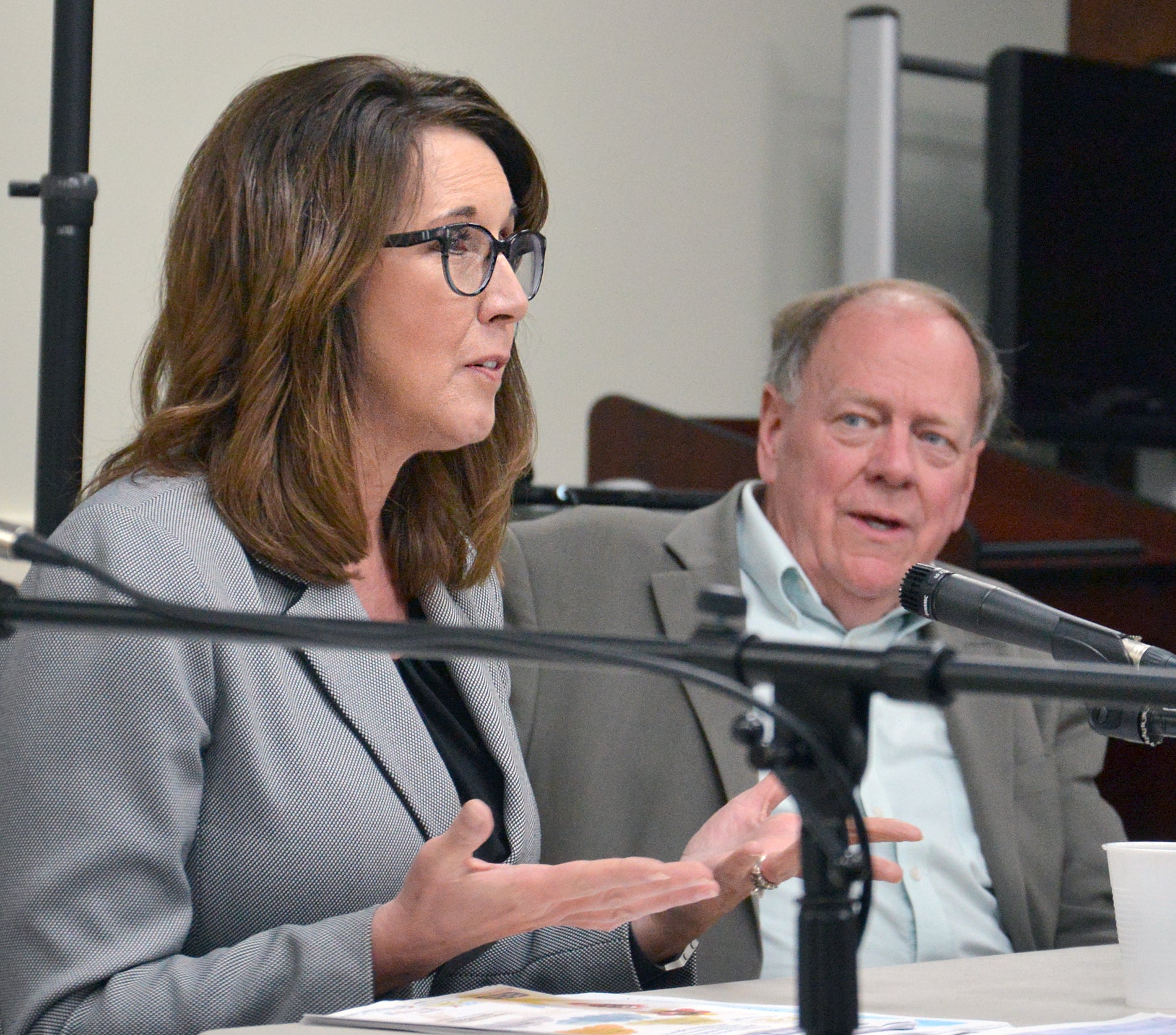Experts talk with Boyle community about improving early childhood education
Published 9:05 pm Wednesday, May 29, 2019

- Kathy Burkhardt, superintendent of the Erlanger-Elsmere Independent school district, participated in a panel discussion last week with Rick Hulefield, founder of Children Inc. about the issue of early childhood education. (Photo by Robin Hart)
More than half of Boyle county’s kindergarteners are not ready to learn, which eventually affects the community’s economy and workforce development. Early childhood development consultant for the Center for Nonprofit Excellence Terry Tolan said therefore, “It’s the community’s job to make sure kids are ready for kindergarten. … It’s critical that schools and the community work together as partners.“
Tolan was speaking to a large group during the Lunch and Learn panel discussion held last week that was sponsored by the Boyle County Community Early Childhood Council and Ephraim McDowell Health, with their partners, Danville-Boyle County Early Childhood Alliance and Develop Danville (the Danville-Boyle County Economic Development Partnership).
According to information shared during the event, the childhood alliance found that, “Each dollar invested in high-quality early learning programs returns up to $17 in the years ahead. These investments will enrich our future workforce, decrease social costs, add value to our community’s amenities, and support our current workforce in need of childcare.”
It also stated, “52.4 percent of kindergarteners in Boyle County lack the physical, linguistic, cognitive, social or emotional skills necessary to benefit from instruction at the kindergarten level. These initial deficiencies have long-term effects, such as an increased likelihood of committing a crime, dropping out of school and needing government assistance. These effects are amplified for at-risk kids.”
Since the closing of Boyle County’s largest child care center last year, several community members have been working to find solutions to address the area’s lack of quality child care and early childhood development, so that young children will be ready to learn once they enter kindergarten. The panel discussion was a way for those interested in improving this community’s early childhood care and learning options to hear from education professionals on how they handle the same issues.
Studies have shown that students who aren’t ready for the kindergarten level fall behind in comprehensive reading skills by third grade, Tolan said. In first and second grades, students are learning to read, but in third grade they begin reading to learn, Tolan said. So the students who start behind in kindergarten usually stay behind throughout their school careers, Tolan explained.
Speaking at the event were Kathy Burkhardt, Ed.D., superintendent, Erlanger/Elsmere School districts; Rick Hulefeld, founder of Children, Inc.; and Leon Monneyhan, Ph.D., CEO of Ohio Valley Educational Cooperative. Each shared how their communities use collaborative programs to provide early child care and education opportunities to families within their school districts.
Burkhardt described how their expansive school districts are using the wing of an empty high school building as an early learning center for children. The center consists of a public preschool, head start program and a child care center. Having the youngest children under one roof helps the school district identify each family’s needs and be able to offer them solutions and options.
“They are our students and one day they’re going to be in our schools, so why wouldn’t we do that?” Burkhardt asked.
Also, offering quality child care in addition to half-day preschool enhances the community’s workforce development, Burkhardt said. “If families have viable options, they can get to work, and they can better themselves if they choose to go back to school or get a promotion.”
“The earlier we can intervene the higher quality of the learning and experience for the child, the better off they’re going to be throughout their school career,” she said.
“The schools can’t do it alone. And the community can’t do it alone. Coming together makes everything much more possible,” Burkhardt said.
Hulefeld said he believes “family engagement — helping families be more effective” is “the key to everything.”
Coalition building between local governments, the chamber of commerce, the health department and the hospital is important in early childhood development, Hulefeld said. “They need to own this stuff.”
Monneyhan agreed. “Ownership is the critical piece. They’re not my kids in the school district. They’re not my kids in headstart. … All of them collectively, they are our kids with all the partners.”
Monneyhan said, “We’ve all got to take ownership to make this work and start at birth and continue through the school system. … The superintendents, they get it. To increase graduation rates, they need to start at the earliest possible age.”






